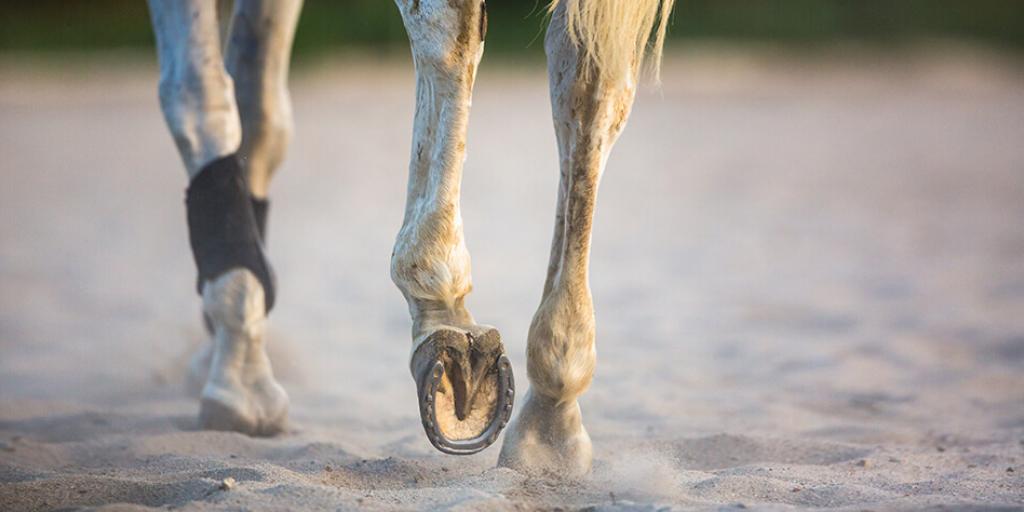
Frogs and Horses
While no frog has a horse, every horse has four “frogs”! How is this possible? It has to do with animal anatomy, and the genius behind its design can teach us a lot about our Creator.
Horses, donkeys, and mules are of the domesticated equine “kind,” having four slender legs ending with solid hooves. Each of a horse’s hooves has a sole on the back, and each sole has a V-shaped rubbery pad, which is called a “frog.” This pad performs three functions. The first is gripping slippery surfaces, and the second is absorbing shock. But the third, and most vital, is helping pump blood back up the leg into the body for circulation each time the horse puts pressure on it. Evolutionary theory cannot explain how horses evolved with hearts too small for their bodies without this separate biological device.
When a horse is sick or injured, cowboys will say, “We need to get him back on his feet.” This is because if the afflicted horse lies down for too long, blood will not circulate through its legs properly and the horse will die. This explains why injured racehorses can seldom be nursed back to strength and are often “put down.” This complex system of blood circulation had to be complete in the very first horse for it to be “good” as the Bible says in Genesis 1:25.
The frog fulfills a unique purpose, without which the horse could not survive! God created it as part of a functionally complete system.
God reigns supreme, and He reveals His purpose to those He calls to Jesus Christ (John 6:44; see Amos 3:7). He does nothing in vain or without planning and design, especially in the lives of those with whom He is working. The Apostle Paul said as much about the various members in the church of God. “But now indeed there are many members, yet one body.… But God composed the body, having given greater honor to that part which lacks it” (1 Corinthians 12:23–24). Beauty and honor do not come to mind when describing a horse’s frog, a “less honorable” member, so close to the ground. But, God places each where He wants them, and He holds every person accountable for their own capabilities (Luke 12:48).
God calls certain people in this age to be humble, teachable servants (Romans 12:3). God gives them different spiritual gifts (Romans 12:6) for His purpose and the “profit of all,” not just for their own personal salvation (1 Corinthians 12:1–7). Ultimately, God has a great purpose for all of mankind, but we have much to learn.
Our consciousness makes us different from horses and other animals. But, like them, we also aren’t complete. Yet, we can know the purpose of life, and we can learn the astonishing truths of God’s Way. With that knowledge, and His help, we can become complete spiritual creations.
When it comes to understanding and appreciating the beauty of God’s great design, you might enjoy the Tomorrow’s World magazine article “Is Darwinian Evolution Dead?” Also be sure to order the free booklets What Is the Meaning of Life? and Evolution and Creation: What Both Sides Miss.
Stay up to date with our Weekly Digest Email!
Tomorrow's World ComMentary Podcast
Subscribe to Tomorrow's World Commentary podcasts on iTunes and Google Play!



